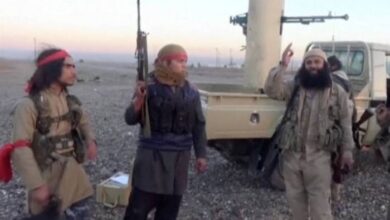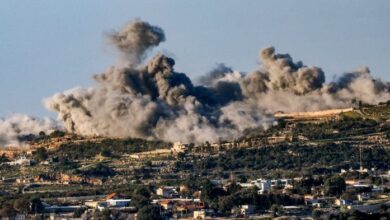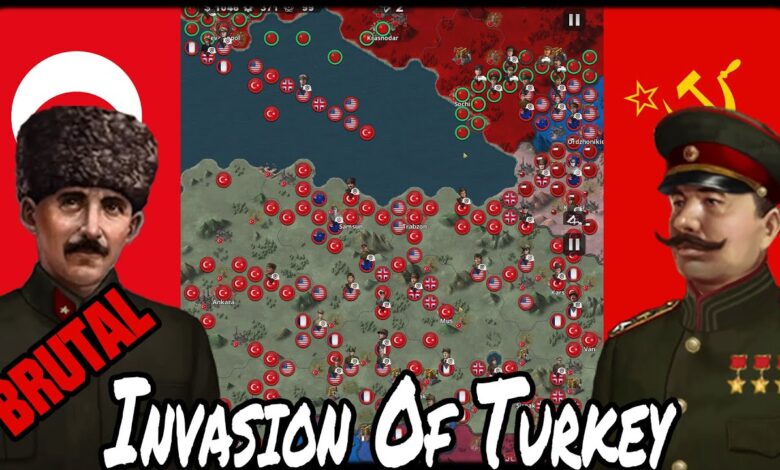
Who Really Loses If Turkey Invades Northeast Syria?
Who really loses if Turkey invades northeast Syria? This question looms large as tensions simmer between Turkey and the Kurdish-led Syrian Democratic Forces (SDF) in the region. The potential for conflict carries immense implications, not only for the immediate actors but also for the broader Middle East and the global fight against terrorism.
Turkey, seeking to establish a safe zone and eliminate Kurdish forces it considers a threat, faces a complex web of international interests and regional power dynamics. The potential invasion could spark a humanitarian crisis, displacing millions and exacerbating the ongoing conflict in Syria.
The ramifications extend far beyond the immediate battlefield, impacting regional stability, global security, and the fight against ISIS.
Military and Strategic Implications
A Turkish invasion of northeast Syria would have significant military and strategic implications, impacting the region’s power dynamics and potentially triggering a wider conflict.
Military Advantages and Disadvantages for Turkey
A Turkish invasion of northeast Syria would present both military advantages and disadvantages for Turkey.
Military Advantages
- Turkey possesses a larger and more technologically advanced military compared to the SDF. The Turkish Armed Forces (TSK) have a strong air force with fighter jets and drones, along with a well-equipped army and navy.
- Turkey’s geographic proximity to northeast Syria allows for rapid deployment of troops and equipment. This proximity provides logistical advantages, allowing Turkey to quickly resupply and reinforce its forces.
- Turkey has a history of military operations in the region, giving it valuable experience in fighting in the Syrian terrain. This experience allows Turkey to adapt its tactics and strategies to the local conditions.
Military Disadvantages
- The SDF, despite being smaller, has gained significant combat experience in fighting ISIS and other militant groups. They are familiar with the terrain and have established a strong network of local allies.
- The presence of US troops and military equipment in northeast Syria poses a significant challenge for Turkey. The US has pledged to defend the SDF and has warned Turkey against a full-scale invasion.
- International condemnation and potential sanctions from the international community could hinder Turkey’s military operation. This could impact Turkey’s economy and diplomatic relations with other countries.
Strategic Objectives of Turkey
Turkey’s strategic objectives in northeast Syria are multifaceted and include:
- Eliminate the Kurdish YPG militia:Turkey considers the YPG a terrorist organization and a threat to its national security. Turkey aims to dismantle the YPG’s military infrastructure and prevent its influence along the Turkish-Syrian border.
- Establish a safe zone:Turkey seeks to create a safe zone in northeast Syria to resettle Syrian refugees currently living in Turkey. This would alleviate the burden on Turkey’s social and economic resources.
- Prevent the establishment of a Kurdish state:Turkey is wary of the potential for a Kurdish state in northern Syria, which it believes could inspire Kurdish separatism within its own borders.
- Gain leverage in Syrian politics:By influencing the political landscape in northeast Syria, Turkey aims to gain a stronger position in the Syrian peace process and secure its interests in the region.
Comparison of Military Capabilities
- Turkey:Possesses a larger and more advanced military, including a strong air force, well-equipped army, and navy. It has a significant advantage in terms of firepower and technological capabilities.
- SDF:Although smaller in size, the SDF has gained valuable combat experience in fighting ISIS and other militant groups. They have established a strong network of local allies and are familiar with the terrain.
Impact on Regional Power Dynamics
- Russia:Russia has a significant presence in Syria and supports the Syrian government. A Turkish invasion could further complicate Russia’s efforts to maintain stability in the region and could lead to a direct confrontation between Russia and Turkey.
- Iran:Iran supports the Syrian government and has close ties with the Syrian Kurds. An invasion by Turkey could jeopardize Iranian interests in Syria and could potentially lead to a proxy conflict between Iran and Turkey.
- United States:The US has a military presence in northeast Syria and has pledged to defend the SDF. A Turkish invasion would put the US in a difficult position, potentially forcing it to choose between supporting its ally, Turkey, or its Kurdish partners in the SDF.
Humanitarian Consequences
A Turkish invasion of northeast Syria would have devastating humanitarian consequences, impacting millions of civilians and potentially exacerbating the ongoing Syrian civil war. The potential for displacement, civilian casualties, and disruptions to essential services are significant concerns.
Impact on the Kurdish Population
The Kurdish population in northeast Syria, which has been a key ally in the fight against ISIS, faces a particularly grave threat. Turkey considers the Kurdish People’s Protection Units (YPG) a terrorist organization and has long sought to eliminate its presence in Syria.
It’s a tragic reality that in the event of a Turkish invasion of northeast Syria, the people of the region would bear the brunt of the suffering. Their lives, homes, and livelihoods would be thrown into chaos, and the humanitarian crisis would only worsen.
It’s a stark reminder of the fragility of peace and the importance of diplomacy. But in a world of such hardship, it’s heartening to see moments of beauty and resilience, like the way the food world remembers the one and only Diana Kennedy , a woman who dedicated her life to sharing the vibrant flavors of Mexican cuisine.
Her legacy reminds us that even in the face of conflict, there is always hope for a brighter future, and that the human spirit can find solace in the simple pleasures of life, like a good meal shared with loved ones.
An invasion would likely result in widespread displacement, violence, and human rights abuses targeting Kurdish civilians. The historical conflict between Turkey and the Kurds, including the Turkish government’s crackdown on Kurdish political movements and cultural expression, makes this scenario particularly concerning.
Potential for a Humanitarian Crisis
The potential for a humanitarian crisis in northeast Syria is immense. An invasion would likely lead to mass displacement, with hundreds of thousands or even millions of people forced to flee their homes. The existing refugee crisis in Syria, which has already displaced millions, would be exacerbated, straining resources and creating a desperate situation for those seeking refuge.
“A Turkish military incursion into northeast Syria would be a humanitarian catastrophe,” said the United Nations High Commissioner for Refugees, Filippo Grandi. “The region is already home to millions of displaced people, and a new wave of displacement would have a devastating impact on the civilian population.”
International Organizations and Assistance
International organizations, including the United Nations, the International Committee of the Red Cross, and humanitarian NGOs, would face a daunting task in providing assistance to those affected by an invasion. The potential for access restrictions and security risks would significantly hinder their ability to reach those in need.
Impact on the Fight Against ISIS
A Turkish invasion would likely disrupt the fight against ISIS, potentially allowing the terrorist group to regroup and regain strength. The YPG, which has played a crucial role in containing ISIS, would be forced to defend itself against a Turkish invasion, diverting resources and attention from the fight against the terrorist group.
The potential for a resurgence of ISIS poses a serious threat to regional and international security.
Political and Diplomatic Ramifications
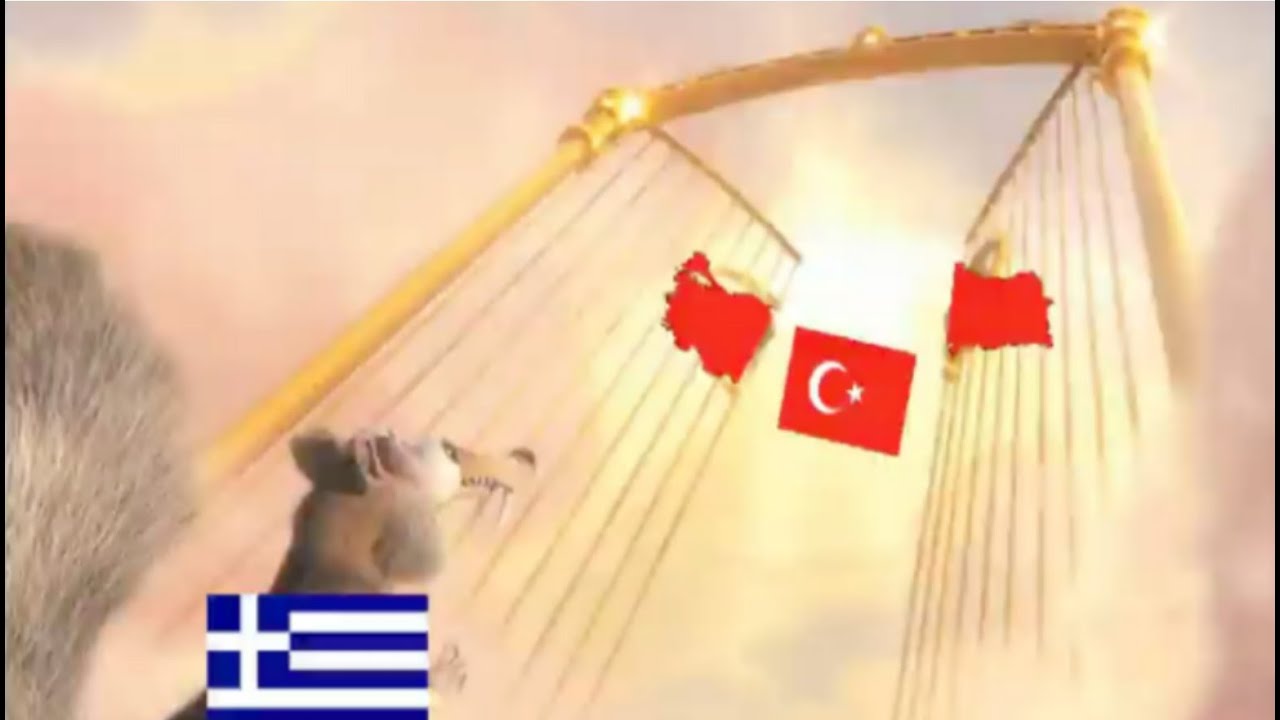
A Turkish invasion of Northeast Syria would have significant and far-reaching political and diplomatic consequences, potentially impacting Turkey’s relationships with its allies, triggering international reactions, and leading to economic sanctions. Moreover, it could exacerbate existing tensions and instability in the region, with the potential to escalate into a wider conflict.
Impact on Turkey’s Relations with Allies
A Turkish invasion of Northeast Syria would likely strain Turkey’s relations with its allies, particularly NATO members and the United States. Turkey’s actions would be seen as a violation of international law and a disregard for the territorial integrity of Syria.
This could lead to a decline in trust and cooperation between Turkey and its allies, potentially jeopardizing Turkey’s position within NATO.
The potential consequences of a Turkish invasion of northeast Syria are far-reaching, with the civilian population bearing the brunt of the impact. But the instability also extends beyond the immediate region, potentially disrupting global supply chains and exacerbating humanitarian crises.
The complex geopolitical landscape underscores the need for innovative solutions, such as those offered by decentralized technologies like blockchain. Areas where bitcoin blockchain technology is applicable include secure supply chain management and transparent humanitarian aid distribution, both of which are critical in addressing the challenges arising from conflict zones.
In the end, it’s the innocent civilians who are most likely to lose if Turkey invades northeast Syria, highlighting the urgency of finding peaceful and sustainable solutions to this complex conflict.
- The United States has been a key partner in Turkey’s fight against terrorism, but the US has also expressed concerns about Turkey’s military operations in Syria. An invasion would likely further strain relations, potentially leading to a reduction in US military support for Turkey.
- Other NATO members, particularly European countries, have also expressed concerns about Turkey’s actions in Syria. An invasion would likely lead to further criticism and calls for sanctions against Turkey.
International Reactions
The international community would likely condemn a Turkish invasion of Northeast Syria, with the United Nations and the European Union playing a central role in expressing their concerns. The UN Security Council could potentially issue a resolution condemning the invasion and calling for a ceasefire.
The EU could also impose sanctions on Turkey, including travel bans and asset freezes.
- The United Nations Security Council has repeatedly called for a peaceful resolution to the Syrian conflict and has condemned all violations of international law. An invasion by Turkey would be a clear violation of these principles and would likely trigger a strong reaction from the UN.
- The European Union has already imposed sanctions on Turkey in response to its actions in Syria. An invasion would likely lead to further sanctions, including economic sanctions that could significantly impact Turkey’s economy.
Potential for International Sanctions
International sanctions are a possibility in response to a Turkish invasion of Northeast Syria. These sanctions could target the Turkish economy, potentially impacting its financial markets, trade, and investment. The United States and the European Union have already imposed sanctions on Turkey in response to its actions in Syria.
- The United States has imposed sanctions on Turkey for its purchase of Russian S-400 missile systems. These sanctions have already had a significant impact on Turkey’s economy. An invasion of Syria would likely lead to further sanctions, potentially targeting Turkish banks, businesses, and individuals.
- The European Union has also imposed sanctions on Turkey, including travel bans and asset freezes on individuals involved in human rights abuses. An invasion of Syria would likely lead to further sanctions, potentially targeting Turkish businesses and individuals involved in the invasion.
Economic and Financial Considerations
An invasion of northeast Syria by Turkey would have significant economic and financial implications, not only for Turkey but also for the region and the international community. The potential costs, both direct and indirect, could be substantial, impacting trade, investment, and humanitarian relief efforts.
If Turkey invades northeast Syria, the biggest losers will be the Syrian people, who will face further displacement and suffering. This echoes a larger pattern of geopolitical maneuvering, where the pursuit of short-term gains often comes at the expense of civilian populations.
Take, for example, Trump’s embrace of LIV Golf, trump embraces liv golf backing a new saudi strategy , which has been widely criticized for its ties to the Saudi government, a regime with a dismal human rights record. The same logic applies to the Syrian conflict, where the pursuit of power and influence often overshadows the human cost.
Ultimately, any invasion of northeast Syria will only serve to exacerbate the existing humanitarian crisis and prolong the suffering of the Syrian people.
Economic Costs of Invasion for Turkey
The economic cost of an invasion would be substantial for Turkey, encompassing both direct military expenditures and potential economic sanctions. The Turkish government would need to allocate significant resources for military operations, including troop deployment, equipment, and logistical support. This could strain Turkey’s already tight budget, diverting funds from other crucial sectors like education, healthcare, and infrastructure development.
- Military Expenditures:The cost of deploying troops, maintaining military equipment, and providing logistical support during an invasion would be significant. This expenditure could divert funds from other crucial areas of the Turkish economy.
- Potential Sanctions:The international community, particularly the United States and the European Union, could impose economic sanctions on Turkey if it were to invade northeast Syria. These sanctions could target Turkish banks, businesses, and individuals, hindering trade and investment, and potentially leading to a decline in the Turkish lira.
Impact on Turkey’s Economy
An invasion would likely disrupt trade and investment flows in Turkey. The potential for economic sanctions and the uncertainty surrounding the conflict could deter foreign investors, leading to a decline in foreign direct investment. Additionally, the disruption of trade routes and supply chains could impact Turkish businesses reliant on imports and exports.
- Trade Disruptions:An invasion could disrupt trade routes and supply chains, impacting Turkish businesses reliant on imports and exports. This could lead to shortages of essential goods and higher prices for consumers.
- Investment Deterrent:The uncertainty surrounding the conflict and the potential for sanctions could deter foreign investors, leading to a decline in foreign direct investment. This could hinder economic growth and job creation in Turkey.
Potential Refugee Crisis and Financial Burden, Who really loses if turkey invades northeast syria
An invasion could trigger a new wave of refugees fleeing northeast Syria, further straining Turkey’s already stretched resources. Turkey currently hosts millions of Syrian refugees, and an influx of new refugees would place an enormous financial burden on the government, requiring increased spending on housing, food, healthcare, and education.
- Refugee Influx:An invasion could lead to a new wave of refugees fleeing northeast Syria, adding to the existing refugee population in Turkey.
- Financial Burden:Providing for the needs of refugees, including housing, food, healthcare, and education, would place a significant financial burden on the Turkish government, potentially straining its budget.
Potential for International Aid and Assistance
The international community could offer financial and humanitarian assistance to Turkey to address the economic and humanitarian consequences of an invasion. However, the availability and extent of such aid would depend on the international response to the invasion and Turkey’s willingness to cooperate with international organizations.
- International Assistance:The international community could offer financial and humanitarian assistance to Turkey to help manage the economic and humanitarian consequences of an invasion.
- Cooperation with International Organizations:The availability and extent of international aid would depend on Turkey’s willingness to cooperate with international organizations and implement effective refugee management strategies.
Long-Term Impacts and Potential Solutions
An invasion of northeast Syria by Turkey would have profound and lasting implications, potentially triggering a cascade of unforeseen events and exacerbating existing regional instability. The ramifications extend beyond immediate military consequences, impacting the delicate political landscape, humanitarian situation, and economic prospects of the region for years to come.
Potential for Long-Term Instability and Conflict
A Turkish invasion would likely lead to prolonged instability and conflict in northeast Syria. The presence of Turkish forces and allied Syrian factions would fuel tensions with Kurdish groups and potentially spark renewed fighting. This could create a protracted conflict, displacing populations, hindering reconstruction efforts, and undermining the fragile peace achieved in recent years.
Concluding Remarks: Who Really Loses If Turkey Invades Northeast Syria
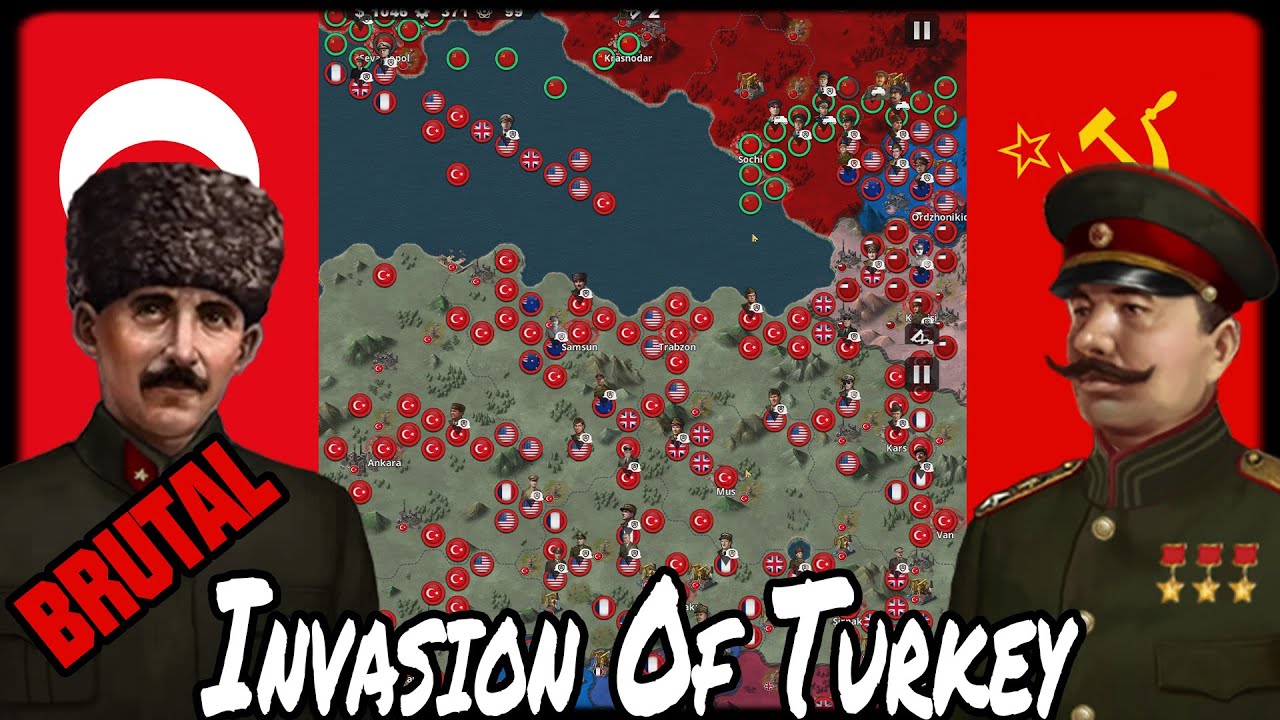
The potential for a Turkish invasion of northeast Syria presents a stark reminder of the fragility of peace in the region. The consequences of such an action would be far-reaching, impacting not only the lives of millions but also the global security landscape.
While Turkey seeks to address its perceived security threats, the potential for instability, humanitarian catastrophe, and a resurgence of ISIS underscores the need for a peaceful resolution. The international community must engage in constructive dialogue and diplomacy to prevent a conflict that could have devastating consequences for all involved.




